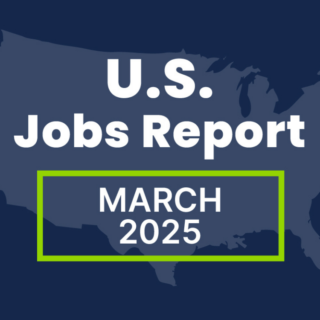By Joe Mongon, Head of Recruitment Delivery, EMEA
When Dame Sharon White, former Chief Executive of Ofcom and current Chairman of the John Lewis Partnership, was recently interviewed on BBC radio, she said: “One area that I think has not had enough attention is what has happened in the jobs market over the last 18 months.” Not enough attention? The UK talent shortage, and the tightness of the labour market, has been at the heart of many mainstream news stories in the UK over the past year: petrol shortages, queues at air and sea ports, and general “skimpflation” in the customer experience.
In this case, White touched upon an interesting factor in the dynamic between an oversupply of job vacancies and an under-supply of job seekers—the “missing million” in the UK workforce who have left employment all together since the start of the COVID-19 pandemic in March 2020.
Who Are the Missing Million?
White identified that there are “1 million fewer people in work,” adding that, “Some think about it as the ‘great resignation’. I think about it as the ‘life reappraisal’, because this is predominantly people in their 50s.”
This latter point is broadly correct: four-fifths of the recent rise in economic activity is among older people, and while the concerning increase in long-term ill health negates the idea that this is most often the result a positive “reappraisal” of life priorities, growth in early retirement started in summer 2021 and remains persistent.
White rightly called for government action to address the challenge of encouraging early retirees back to work, and it’s possible that “flexible retirement” will in the future be discussed as often as “flexible working.” In the meantime, there is much that employers can do directly to support and re-engage early retirees including approaches to recruitment, job design, workplace support, and – yes – flexibility.
How to Attract and Retain Older Workers
A clear and informative job profile that brings the role to life and amplifies these factors can be the first step to finding the right candidate, including engaging overlooked or under-engaged audiences like the missing million. Job seeker priorities are often straightforward and are typically unaffected by age. Salary and flexibility—especially work from home considerations—lead the way when it comes to potential job switches.
To succeed, employers must recognise that temporary solutions to business problems, such as hybrid working, have turned into ongoing employee preferences and expectations. If you can’t advertise jobs as flexible and leverage that advantage due to the type of role, investment in pay or upskilling offers may be the answer.
At PeopleScout, we are certainly giving the UK talent shortage our full attention. We’re offering our clients bespoke strategies and tactics to overcome these challenges. By helping organisations understand their audiences—including the missing million—we’re able to support targeted candidate attraction efforts that create real results.



